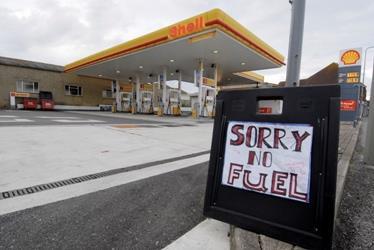
Truck fleet operators are drawing up contingency plans in the event of a national strike by fuel tanker drivers.
Unite union leaders representing more than 2,000 tanker drivers working for Wincanton, DHL, BP, Hoyer, J W Suckling, Norbert Dentressangle and Turners (Soham) are locked in talks with employers over a dispute about safety standards and employment terms.
With evidence emerging of panic buying of petrol in some areas following confusing advice from government, distribution firms have been drawing up their own contingency plans to try and allay customers' concerns.
Simon Harper, director of operations for TNT Express Services UK & Ireland, describes contingency planning as an “important part of TNT’s operating model”.
"Disruption in [fuel] supply is unlikely to adversely affect our operations because of our own fuel bunkers," he adds.
Ian Veitch, chief executive of Yusen Logistics, says: "We've had a lot of calls from clients making sure we're acting accordingly. We purchase fuel on a contract and we've checked with our supplier and they aren't affected by the dispute. The issue is whether they would be able to get vehicles in and out [of the refinery] to get the stock."
Andrew Palmer, MD of 400-tanker operator Suttons Group, says: "If things deteriorate you start looking at prioritising certain customers, such as water treatment. We will get some guidance about which of these to serve first."
Operators are also considering putting in place measures to help employees get to and from work. NFT Distribution will ensure that each depot can access "a suitable minibus vehicle to assist key staff (including drivers) to attend work in the event that retail fuel supply is affected".
Supermarket giant Sainsbury's says it is experiencing higher than usual demand for petrol and diesel. "At the moment our supply chain and delivery services are performing well thanks to the hard work of our colleagues and fuel suppliers. Currently the vast majority of our petrol filling stations are open and operating well.”
The government is putting 80 military personnel through an eight-day training course to enable them to take the place of striking drivers should it be necessary.













